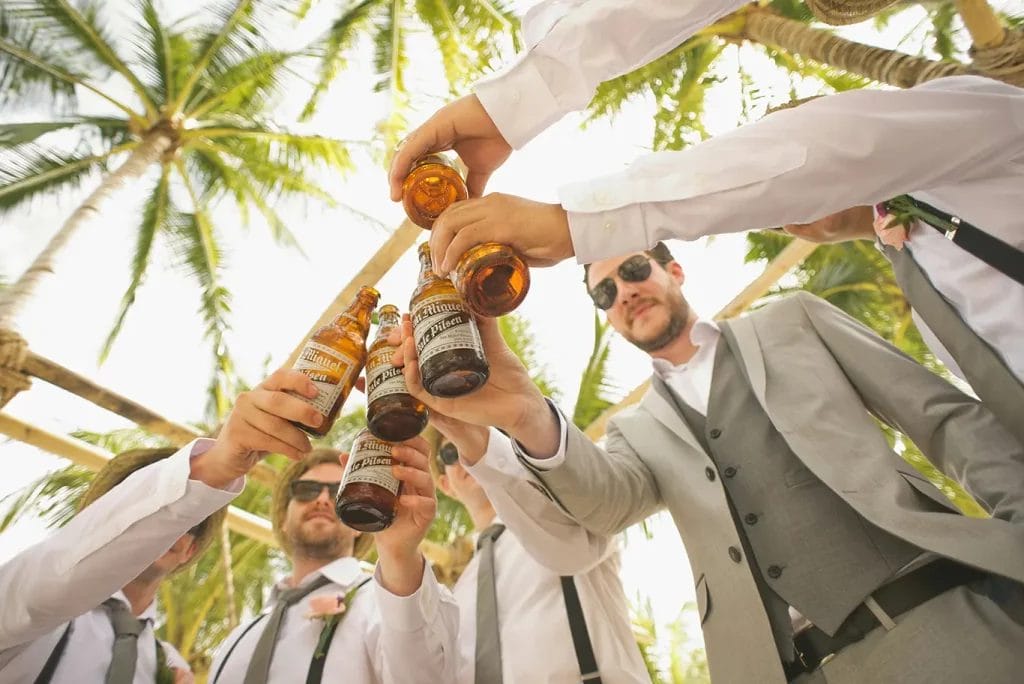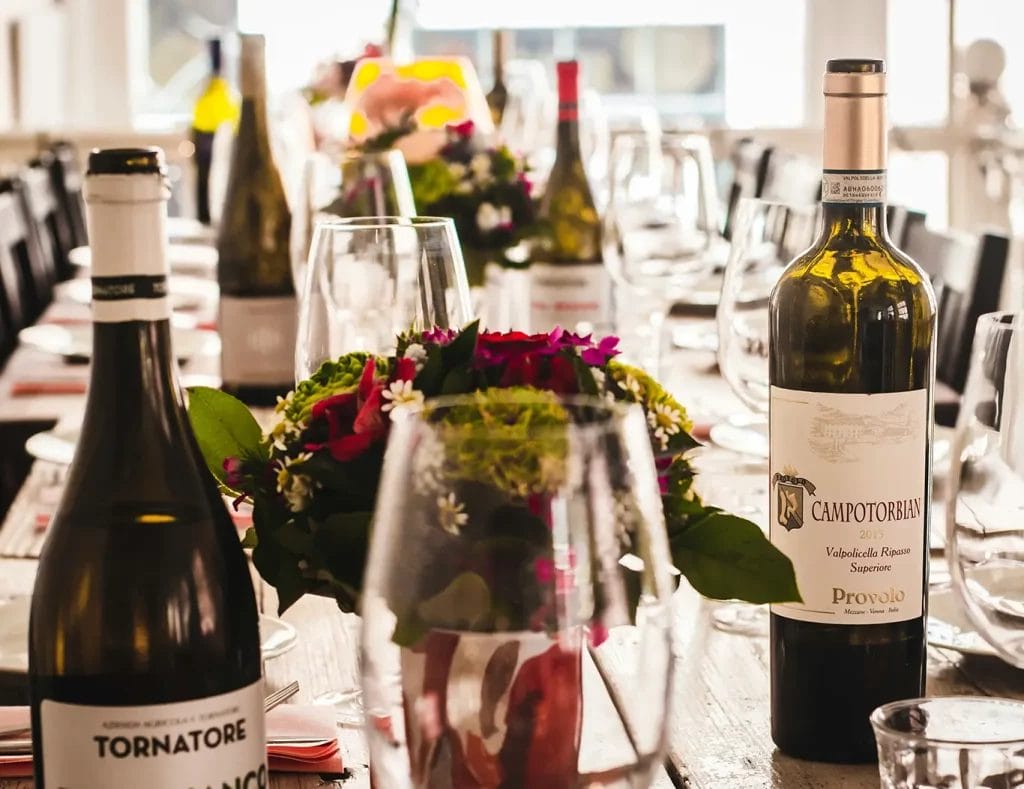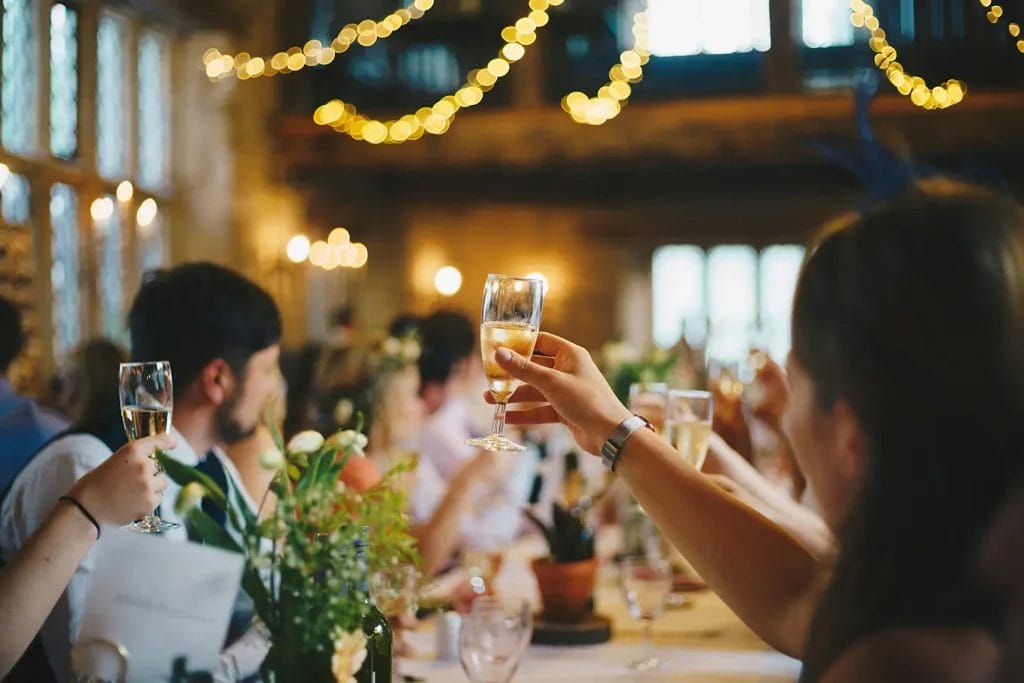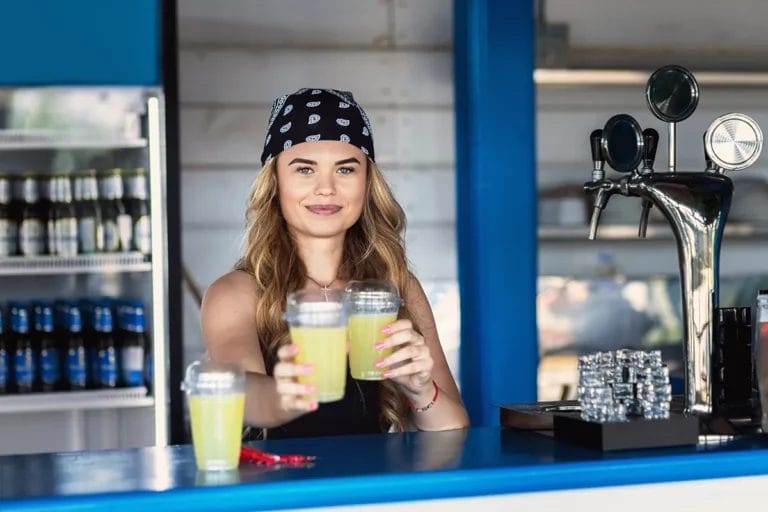Looking for a way to level up your catering business? Offering alcohol just might be the right move for you. According to a 2022 Gallup poll, 63% of American adults drink alcohol, with only 36% reporting that they never do. As a result, there’s a big demand for catering businesses that also provide alcohol.
However, with the amount of rules and regulations surrounding alcohol, it can be intimidating to try and add this service to your business operations. Additionally, there are a lot of risks that come with serving alcohol you need to be prepared for in order to avoid them or minimize the impact on your business if they happen to you.
That’s why we’re breaking down the seven things you need to serve alcohol as a caterer. Read on to learn more about what you need to prepare your business for this new venture, as well as what your next steps should be after getting started.
1. Decide On Your Alcohol Catering Packages
The first step in your alcohol catering journey should be to decide which packages you are going to offer customers. Hosts may want different types of alcoholic beverages depending on the occasion—what you offer at a wedding may not be the same as a corporate event.
Customers will also have different budgets for alcohol that you should account for when creating your packages.
One way to organize your alcohol packages is to split them into standard and top-shelf options like this:
- Standard wine and beer
- Standard full bar
- Top-shelf wine and beer
- Top-shelf full bar
This allows you to offer basic, more affordable services in addition to premium packages.
Typically, your customers will want either wine and beer service or a full bar. However, some people may want to include a specialty drink as part of their event.
For example, a couple at a wedding might design a signature cocktail to celebrate their special day but they may not want to pay for a full bar service. To accommodate this, consider offering a package that includes wine and beer plus a specialty drink.
Another package to consider offering is a complete bar, which goes beyond a full bar to encompass a broader selection of liqueurs, garnishes, and mixers. Bear in mind that a complete bar will be a bigger challenge on your end because you’ll need to come prepared with a huge selection. It may be worth looking into if your competition doesn’t offer this service, as this can set your business apart from theirs.

2. Price Your Bar Packages
Once you’ve decided what you’re going to offer, it’s time to price each package. You can start by taking a look at what restaurants and bars in your area are charging for the same drinks you’ll offer in each package. This will give you a good idea of what customers are used to paying for each drink.
However, it’s important not to solely base your prices on what other businesses charge. Make sure to calculate what it costs you to make each drink so you don’t accidentally undercharge and can maintain a gross profit margin between 76%–82% per pour.
After you figure out the cost of one drink, it’s time for some more math. On average, guests will have two drinks in the first hour of the event and then one for each following hour. To determine how much you should charge per person, The Portable Bar Company recommends that you multiply the cost of one drink by the number of hours the event will last, plus one more drink.
For example, if you figure that one glass of red wine will cost $12 and the event you’re catering will last for four hours, the total cost per person will be $60.
3. Get Your Alcohol Catering License
- Submit your application ASAP: Don’t delay or you may be subject to expensive expediting fees. Once you’ve decided to begin offering alcohol as part of your catering business, complete the application.
- Determine which license you need: Many states will offer liquor licenses that are specific to certain events, such as weddings. Make sure you’re selecting the license(s) that you need for your business based on what types of events you cater.
- Have additional documentation at the ready: A completed application isn’t the only thing you’ll need to obtain your license—you’ll also need to provide extra documentation such as your state ID or even a background check depending on where you live. Make sure you reach out to your local liquor board to confirm what kind of documentation you’ll need ahead of time so you can prepare.
- Pay your application fee: In most cases, even if you aren’t trying to expedite your application you may need to pay a standard fee just to submit your materials.

4. Hire Bartending Staff
- ServSafe Alcohol: This training prepares employees to responsibly provide alcohol to patrons and requires them to attend a course and pass an exam.
- Training for Intervention ProcedureS (TIPS): The goal of this program is to teach employees to keep everyone safe by preventing drunk driving accidents, intoxication, and underage drinking. This course also requires them to pass an exam to receive the certification.
Additional Bartending Staff Solutions
One alternative to hiring your own bartenders is to train your existing staff to serve alcohol. They’ll still need to take the above courses and any others required by your state, but if you have a large enough staff to accommodate your new venture into selling alcohol, this may be a great option for you.
You can also hire a bartending service to work with you at any events where you plan on catering alcohol. These bartenders will not be part of your staff, but they’ll come fully trained and certified and may even bring their own gear so you don’t have to provide your own.
5. Purchase Bartending Supplies
Selling alcohol as a caterer will require an additional set of gear that you don’t already have. Depending on what kinds of packages you are offering (or which package each client selects for an event), the exact type of equipment you need to bring may vary. However, there are a few basics that every alcohol caterer needs to have on hand:
- Cocktail strainers: These strainers act as a filter for things like ice and pulp that may add an unwanted texture to a drink.
- Cocktail shakers: Shakers keep the drink cold while you mix it with ice.
- Jiggers: Measuring liquor properly is very important when making drinks, and jiggers help bartenders add just the right amount.
- Bar spoons: To stir drinks, you’ll need a set of bar spoons.
- Garnishing tools: Many drinks have a signature garnish, such as a slice of fruit or lemon zest, which you’ll need certain tools in order to achieve. This could include anything from tongs, corers, peelers, and more.
- Beverage dispensing supplies: Since you’ll be serving drinks in large volumes, you should invest in commercial beverage dispensers. You can buy equipment that allows you to offer drinks on tap, which will help you handle the demand for drinks at any event you cater.

6. Protect Your Business With Alcohol Catering Insurance
While catering with alcohol can be very profitable, it does not come without risks. For example, if a guest at the fundraiser you’re catering has too many beers, drives away from the venue, and causes an injury accident, you could be held responsible to pay for damages, medical fees, and legal fees.
Liquor liability claims can be extremely expensive and may put your business’ finances in jeopardy. However, catering liquor liability insurance can shield you from these claims and prevent you from facing thousands of dollars in out-of-pocket costs. Depending on where you live, you may be legally required to carry this kind of liability insurance if you serve alcohol.
At Insurance Canopy, we make getting liquor liability insurance easy with our online checkout process—no need to speak with an agent.
- For catering businesses that serve alcohol year-round, we’re proud to offer an annual policy starting at $35.42 per month
- If you only need short-term coverage, our event plan starts at $275 for three days of coverage
Even if your event only lasts one day, you’ll be shielded from liability claims during set-up and teardown days.
No matter how well-trained your staff is, accidents still happen. Make sure your catering business is safeguarded against these incidents by purchasing your liquor liability policy today!
7. Advertise Your Alcohol Catering Service
Adding alcohol to your business is a big move and you’ll want to get the word out about it as soon as you can! After all, not all catering services offer alcohol packages, so this new addition can set you apart from the competition. Below are a few ways to accomplish this:
- Update your website: The first thing you should do is make sure your website accurately reflects that you offer alcohol packages now. This is the main source of information about your business, so it should be the first thing you update.
- Share the news on social media: Once your website is updated, take to your social media accounts and share the big news! Make sure you post on all platforms you’re active on for consistency and to maximize the amount of customers who see the announcement.
- Add it to your business cards: Even in this increasingly digital age, your business cards are still important to promoting your services. Make sure to create new business cards that mention your alcohol packages.
- Email your clients: Past clients who hired you before may be excited to know that you have bar packages now. In addition to hiring you again, they may also pass this information on by word of mouth to others.
Cheers to a New Era for Your Business!
Now that you know what you’ll need in order to start catering with alcohol, you’re ready to take this exciting next step with confidence! For more information on how to protect your business after this big change, find out the most common questions business owners have about liquor liability insurance. We wish you the best of luck in your new endeavor!





